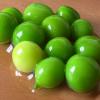-
Welcome to the eG Forums, a service of the eGullet Society for Culinary Arts & Letters. The Society is a 501(c)3 not-for-profit organization dedicated to the advancement of the culinary arts. These advertising-free forums are provided free of charge through donations from Society members. Anyone may read the forums, but to post you must create a free account.
Making bottarga at home
-
Similar Content
-
- 187 replies
- 31,691 views
-
- 229 replies
- 36,896 views
-
- 81 replies
- 21,050 views
-
- 83 replies
- 5,216 views
-
- 186 replies
- 48,803 views
-
-
Recently Browsing 0 members
- No registered users viewing this page.




Recommended Posts